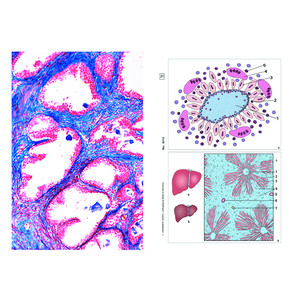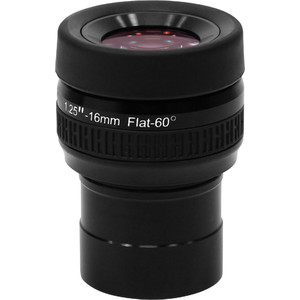Prepared Microscope Slides
Basic component of the program are the A, B, C and D series comprising of 175 microscope slides. The four series are arranged systematically and constructively compiled, so that each enlarges the subject line of the proceeding one. They contain slides of typical micro-organisms, of cell division and of embryonic developments as well as of tissues and organs of plants, animals and man. Each of the slides has been carefully selected on the basis of its instructional value. LIEDER prepared microscope slides are made in our laboratories under scientific control. They are the product of long experience in all spheres of preparation techniques. Microtome sections are cut by highly skilled staff, cutting technique and thickness of the sections are adjusted to the objects. Out of the large number of staining techniques we select those ensuring a clear and distinct differentiation of the important structures combined with best permanency of the staining. Generally, these are complicated multicolor stainings. LIEDER prepared microscope slides are delivered on best glasses with ground edges of the size 26 x 76 mm (1 x 3"). – Every prepared microscope slide is unique and individually crafted by our well-trained technicians under rigorous scientific control. We therefore wish to point out thatdelivered products may differ from the pictures in this catalog due to natural variation of the basic raw materials and applied preparation and staining methods.
The number of series in hand should correspond approximately to the number of microscopes to allow several students to examine the same prepared microscope slides at the same time. For this reason all slides out of the series can be ordered individually also. So, important microscope slides can be supplied for all students.
Environment Part II. Water Pollution. Problems and Results.
20 Microscope Slides
1. Intestinal bacteria (Escherichia coli) from putrid water
2. Putrefactive bacteria (Spirillum) from sludge poor in oxygen
3. Putrefactive bacteria (Sphaerotilus) bacteria, forming long chains
4. Sludge bacteria (Methanobacterium) causing sewer gas
5. Sulphur bacteria (Thiocystis)
6. Wasserbluthe (Microcystis), blue-green alga "blooming" in stagnant water
7. Anabaena, blue green algae, in eutrophic water
8. Spirogyra, filamentous green alga in nutrient-rich water
9. Spirulina, corkscrew-shaped algae occurring in bitter seas
10. Chlamydomonas, one-celled green alga in eutrophic water
11. Cladophora, green alga from moderately polluted water
12. Diatoms, mixed algae from scarcely polluted water
13. Euglena, green flagellates occurring in stagnant eutrophic water
14. Ciliates, different species from nutrient-rich water
15. Rotifers (Rotatoria), small animals from putrid water
16. Tubifex, fresh water oligochaete, living in the sludge
17. Carchesium, stalked ciliate from moderately polluted water
18. Water mold (Saprolegnia), harmful to plants and animals
19. Skin of fish injured by chemicals, t.s.
20. Skin ulcer of an amphibian, t.s.


